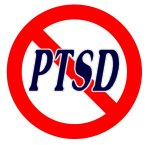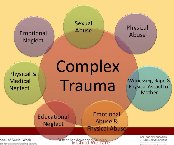When we were young, we all had a vision of how the world was. And while we did not have the facilities to do reality testing, we decided how to behave, what to say and not say, what to feel or not feel and more, based on our perceptions. We received verbal and non-verbal messages that reinforced our conclusions. We knew what we had to do to survive, and, that’s what we did. We did whatever it took to get our needs met.
This is our life script. We wrote it and now as adults, we direct it and act in it, just like a good play. The problem is that what worked in childhood most likely is not working in adulthood. The other part of this issue is that our script operates at an unconscious level, out of our awareness. We may behave in certain ways and not be aware of what we are doing or why we are doing it.
The script is the source of games. We play games because we don’t or won’t ask for what we want directly. We learned asking for what we want did not work well as children, so we learned to play games to get our needs met. One example of this is the child who acts out to get attention, even if it is negative attention. The child may misbehave, get yelled at and maybe even spanked. The child knows that it needs STROKES, physical and psychological contact, to survive and grow. If the child can not get loving, nurturing attention, it will find a way to get ANY attention. This child’s script may be that he/she is not lovable and there is not enough love to go around. Carry this concept over into an adult relationship and the results can be disastrous.<
One of the tenents of Transactional Analysis is to uncover the games, stop playing them and ask for what we want directly. This serves to terminate or change the old script and create a new, healthy script to live by. In the example above, I would work with the client to uncover the sources of the decision, teach the client how to reality test the decision and then invite the client to create a new decision. I would also teach the client new communications skills so he/she asks for what they want in a clean, direct manner. Often-times, understanding what they want is a more difficult process than asking for what they want.
We classify scripts into three categories according to their content and outcome. They are: 1) Winning, 2) Losing or hamartic, 3) Non-winning or banal. Winning scripts accomplish a declared purpose and make the world a better place to live in. People living in the I+U+ quadrant of the OK CORRAL have winning scripts. Losing scripts are just the opposite and we find them in the I-U- quadrant as well as the I+U- quadrant. Banal or non-winning scripts are those that fall in between the winners and losers and we find them in the I-U+ quadrant. The owners of these scripts don’t make any big wins or losses and they are not risk takers.
Additionally, losing scripts have degrees of severity according to the payoff or outcome of the script. The mildest of these is a first degree script and third degree scripts are the most serious.
First degree scripts have losses and failures that are not severe enough to cause embarrassment or discomfort in the person’s social circle. An example of this might be that I lost control of my car on an icy pavement and ended up in the ditch.
Second degree scripts are serious enough that they do not get discussed in the social environment. Instead of loosing control on the ice, I was under the influence of alcohol and I don’t want you to know.
Third degree scripts are the most serious of scripts. These scripts have disastrous outcomes that end up in the court room, hospital or morgue. Maybe I was driving while drunk and killed someone. They end up in the morgue and I end up in jail.
I created my business name from the concept of scripts. Everyone has a script. In fact, we have many scripts and to get the best out of life, we need to explore these scripts and make changes where necessary. Hence the name “Life Script Mental Health Counseling Services PLLC.” I provide counseling, guidance and support that enables you to make new decisions and write a new script for yourself.











